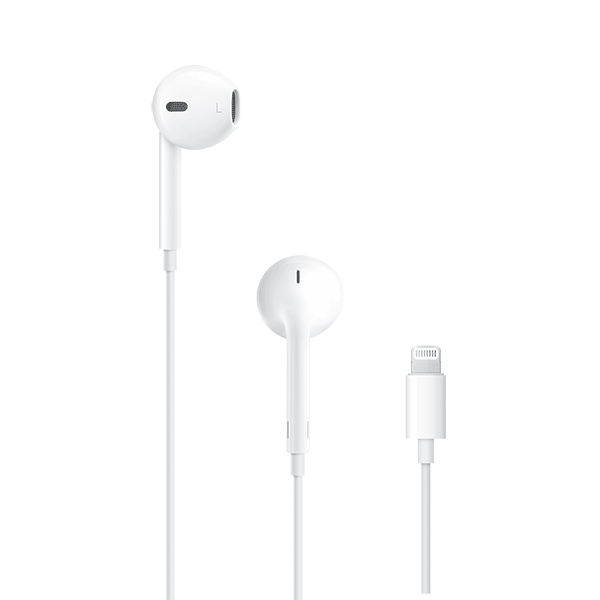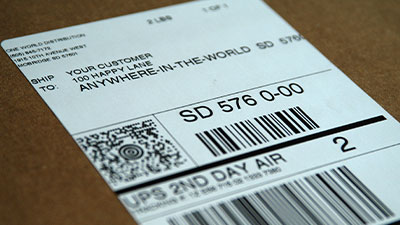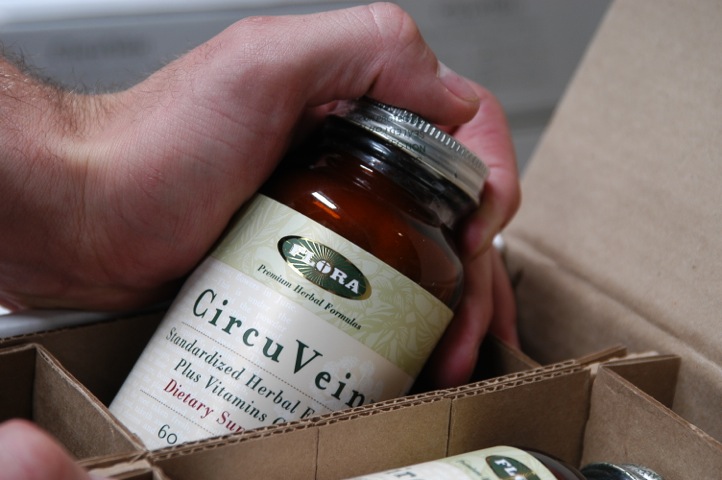The reintroduction of tariffs by President Trump in 2025 has stirred the pot for ecommerce brands, especially those dependent on imports. Trump tariffs are poised to increase the cost of goods sold (COGS), pressuring margins and forcing businesses to rethink their strategies. But what if, instead of cutting costs, there was a way to make your customers willing to pay more and avoid tariffs altogether?
Product personalization might be the key.
By offering ecommerce product personalization, brands can counteract the financial strain these tariffs impose. Learn more about Personalized-to-Consumer (P2C) Fulfillment and how it can turn logistics from another expense into a new profit center.
The Tariff Landscape: What Ecommerce Brands Need to Know
Disruptions in Supply Chains
As tariffs raise the cost of imported goods, ecommerce brands are faced with higher costs of goods sold (COGS). This disruption forces companies to rethink their supply chains. Many see product costs rising sharply, impacting margins and pricing strategies. Customarily straightforward supply chains are now entangled with complexities due to these tariff changes.
Retaliatory Measures and Trade Dynamics
In response to U.S. tariffs, affected countries have implemented retaliatory measures. This tit-for-tat strategy complicates trade dynamics further. Businesses must navigate an increasingly intricate web of international regulations and counter-tariffs that challenge traditional operations.
Understanding the New Tariff Framework
Breaking down the specific tariff rates:
- Canada: As of March 4, 2025, the U.S. imposed a 25% tariff on general imports from Canada. However, goods that qualify under the United States-Mexico-Canada Agreement (USMCA) are exempt from these additional tariffs. Approximately 38% of Canadian products met USMCA qualifications in 2024, with expectations for this percentage to increase. Trump continued to ramp up tariff rates, and effective June 4, 2025, the U.S. increased tariffs on steel and aluminum imports to 50%, impacting key allies like Canada and Mexico. Also, the U.S. plans to impose a 10% tariff on Canadian energy exports, including oil and gas, starting March 4, 2025, as part of broader trade measures.
- Mexico: Effective March 4, 2025, a 25% tariff was imposed on general imports from Mexico. Similar to Canada, products qualifying under USMCA are exempt. In 2024, about 50% of Mexican goods were compliant, with plans to increase this to 85–90%. The 25% tariff on all Mexican goods could generate around $132 billion a year in incremental tariffs, largely on motor vehicles and parts, computer & electronic products, electrical equipment, and agricultural products. Mexico recently announced potential retaliatory measures if no agreement is reached regarding U.S. metal tariffs, emphasizing the need to protect national interests.
- China: Initially, on February 4, 2025, the U.S. imposed a 10% tariff on all imports from China. This rate increased to 20% on March 4, 2025, and further escalated to 125% on April 9, 2025. In response to U.S. tariffs, Canada and China announced retaliatory tariffs on U.S. goods, including agricultural products and consumer goods.
These changes demand strategic adjustments by ecommerce brands to absorb or offset additional costs. However, there has been some recent legal pushback. Federal courts have issued rulings on the legality of the tariffs, with some being temporarily blocked and then reinstated pending appeals.
On May 28, 2025, a U.S. Court of International Trade in Manhattan blocked former President Donald Trump’s sweeping “Liberation Day” tariffs, saying he overstepped his authority by imposing blanket tariffs on imports under emergency powers. The court ruled that the U.S. Constitution grants Congress, not the president, the exclusive power to regulate trade and that the International Emergency Economic Powers Act (IEEPA) does not confer the president the authority to set tariffs at his discretion.
However, if new tariffs continue, the Congressional Budget Office projects that the tariffs could slash the federal deficit by $2.8 trillion over a decade.
De Minimis Threshold Elimination
Another critical change is the elimination of the $800 de minimis threshold for small shipments through Section 321 through President Trump’s executive action on February 1, 2025. Previously, this threshold allowed goods valued under $800 to enter duty-free. Now subject to increased customs scrutiny, even low-value shipments could face delays or additional fees.
Navigating these challenges requires a keen understanding of evolving trade policies and strategic adaptations within supply chains. As ecommerce businesses adjust their strategies to counteract these costs, a shift toward personalized fulfillment solutions could offer a lucrative opportunity—one that not only maintains competitiveness but also enhances customer experience.
The New Way Forward: Personalized-to-Consumer (P2C) Fulfillment
Capabilities of P2C Fulfillment
Ecommerce brands looking to counteract the impact of Trump’s tariffs might find a goldmine in Personalized-to-Consumer (P2C) fulfillment. This approach will increase average order values, boost word-of-mouth marketing, and help you navigate tariff expenses. Your customers can easily design one-of-a-kind items just for them using our product personalizer that integrates directly to your ecommerce platform.
Enhancing Customer Experience through Personalization
Embroidery and Engraving offer personalization that feels exclusive and unique. From initials on a bag to a heartfelt message engraved on a piece of jewelry, these options make products feel more valuable and personal.
Customers are happy to pay extra to have their name engraved or embroidered. Product personalization strengthens the emotional connection to your brand and creates opportunities for upselling at checkout.
Unleashing Creativity with Direct-to-Object Printing
Direct-to-Object Printing is another exciting feature of P2C fulfillment. With this capability, any product can be transformed into a canvas for creativity. Whether it’s a custom phone case or a personalized mug, printing directly onto objects opens up endless customization possibilities.
Telling Your Brand Story through Custom Packaging
Customization doesn’t stop there. Custom Packaging provides an opportunity to extend your brand’s story beyond the product itself. A beautifully packaged item makes an unforgettable unboxing experience—a shareable moment that encourages customers to spread the word about your brand. Customers can take it a step further and include personalized greeting cards for the most elevated gift-giving experience in ecommerce.
Building Deeper Customer Relationships through Personalization
These customization options aren’t just about aesthetics; they turn an ordinary product into a signature item that the shopper never wants to lose. Personal touches increase satisfaction and loyalty. They command premium prices and generate natural word-of-mouth referrals.
Transforming Costs into Profits with P2C Fulfillment
The magic of P2C fulfillment lies in turning logistics from an operational cost into a new profit center. By offering these personalized services at checkout, ecommerce brands can implement effective upsell strategies, enhancing both the shopping experience and their bottom line. The statistics on ecommerce personalization and the benefits of personalization prove that it’s the next big thing.
A Powerful Strategy in Modern Ecommerce
P2C fulfillment isn’t merely a trend; it’s a powerful strategy in modern ecommerce. As you navigate these tariff challenges, use our personalized fulfillment services to drive profitability in ways that standard fulfillment can’t match.
Convenience and Repeat Purchases
The ease of adding personalization to an order makes customers happy and more likely to return. Convenience is king in ecommerce, and P2C fulfillment ensures the buying process is smooth and enjoyable.
OWD leads the charge with its innovative P2C services, setting itself apart as a pioneer in this space. By partnering with OWD, brands can effectively counter Trump’s tariffs in ecommerce through personalized solutions that drive profit rather than erode margins.
P2C is part of our 3PL fulfillment services, which include everything you need to deliver a 5-star shopping experience. Whether it’s using our call center services to handle customer support or handling international fulfillment expertise to navigate tariffs, OWD is your ultimate 3PL partner.
Addressing Consumer Cost Sensitivity in the Age of Tariffs with P2C Fulfillment Strategies
Counter Trump Tariffs in Ecommerce with Personalized-to-Consumer Fulfillment
With rising tariffs squeezing margins, P2C fulfillment stands out as a strategic lifeline. Offering personalization not only enhances the customer experience, it also becomes a clever pricing strategy to maintain customer loyalty despite cost hikes.
Why Personalization Matters:
- Customization Options: Adding features like custom engravings or personalized notes can turn a standard product into a tailored experience.
- Upsell Strategies:: These options serve as seamless upsells at checkout, turning a necessary purchase into a special occasion. Personalized products make great presents. Shoppers will spend even more on personalized cards or custom packaging for the ultimate unboxing experience.
- Loyalty Through Unique Benefits: Highlighting unique product benefits, especially those tied to domestic production, reassures customers of quality and supports local economies.
OWD's Role:
As pioneers in P2C services, OWD uniquely positions ecommerce brands to leverage product personalization. By integrating P2C into their offerings, brands transform fulfillment from just another cost into a profitable venture.
Emphasizing domestic production and personalization as key selling points helps counteract the negative impact of tariffs. It keeps customers engaged and willing to pay a premium for products that feel personal and thoughtfully crafted.
Other Strategic Adaptations for Ecommerce Brands to Thrive Despite Tariffs
P2C Fulfillment is changing the game for ecommerce businesses. Instead of seeing fulfillment as an expense, P2C is a new revenue-generating avenue. With OWD leading the way, ecommerce brands have a special advantage over competitors, especially if they are in a saturated market. It’s the secret to standing out and finally starting to make some noise.
Local Fulfillment Strategies
Implementing local fulfillment strategies is crucial. By getting products closer to your customers, you can lessen the impact of tariffs, speed up shipping times, and lower costs. This local method isn’t just economical but also improves your brand’s image by demonstrating a commitment to sustainability and quick service.
Diverse Supply Chains
Establishing a diversified supply chain with multiple suppliers across various regions is vital. This strategy safeguards businesses against unforeseen tariff hikes or trade disruptions. Strategic diversification ensures competitive pricing and a consistent inventory flow.
Importing Components for Domestic Assembly
An effective method to navigate tariff challenges involves importing individual components rather than finished products. Often, these parts are subject to lower tariffs. By assembling products domestically, businesses can benefit from reduced duty rates. OWD supports clients by offering assembly services, enabling brands to capitalize on this cost-saving strategy.
Embracing Change with P2C Fulfillment
Adapting to tariffs in the ecommerce world doesn’t have to mean cutting corners. Personalized-to-Consumer (P2C) Fulfillment offers a strategic path forward. This approach is not just a trendy add-on but a necessity for boosting sales and countering tariffs.
By integrating P2C, ecommerce brands can:
- Enhance customer experiences with unique, personalized touches that increase perceived value.
- Turn fulfillment into a profit center by charging for customization options like engraving, embroidery, and gift wrapping.
- Maintain competitive pricing by focusing on domestic production and unique product benefits, countering the impacts of Trump’s tariffs.
OWD’s expertise in B2B and D2C fulfillment ensures your brand adapts smoothly while thriving under new global trade realities. Book a logistics consultation, chat with a logistics expert on P2C fulfillment, and learn how we can help transform your business.
FAQs (Frequently Asked Questions)
What are Trump tariffs and how do they affect ecommerce brands?
Trump tariffs are trade taxes imposed on imported goods, which can significantly increase the cost of products for ecommerce brands that rely on imports. This leads to higher costs of goods sold (COGS) and tighter profit margins, impacting overall business profitability.
How can personalized-to-consumer (P2C) fulfillment help mitigate the impact of tariffs?
P2C fulfillment enhances customer experience through customization options, allowing brands to create personalized products. This approach can increase customer willingness to pay, potentially offsetting tariff-related costs and transforming fulfillment into a profit center rather than just an expense.
What is the significance of the $800 de minimis threshold in relation to tariffs?
The $800 de minimis threshold allows small shipments to enter the U.S. without incurring tariffs. Recent changes have eliminated this threshold, meaning even small packages may face customs scrutiny and additional fees, complicating the import process for ecommerce brands.
What strategies can ecommerce brands adopt to address consumer cost sensitivity due to tariffs?
Ecommerce brands can emphasize unique product benefits, focus on domestic production, and enhance personalization in their offerings. By doing so, they can maintain customer loyalty despite rising prices caused by tariffs.
How does P2C fulfillment create upselling opportunities during checkout?
P2C fulfillment offers various customization services such as embroidery and custom packaging that enhance the shopping experience. These personalized options provide opportunities for upselling at checkout by encouraging customers to choose additional personalized features for their purchases.
What role does effective customs compliance play in managing the impacts of new tariffs?
Effective customs compliance management is crucial in navigating new tariff regulations. Brands must ensure proper documentation and operational processes are in place to minimize complexities associated with customs, thereby reducing delays and potential fines related to non-compliance.




